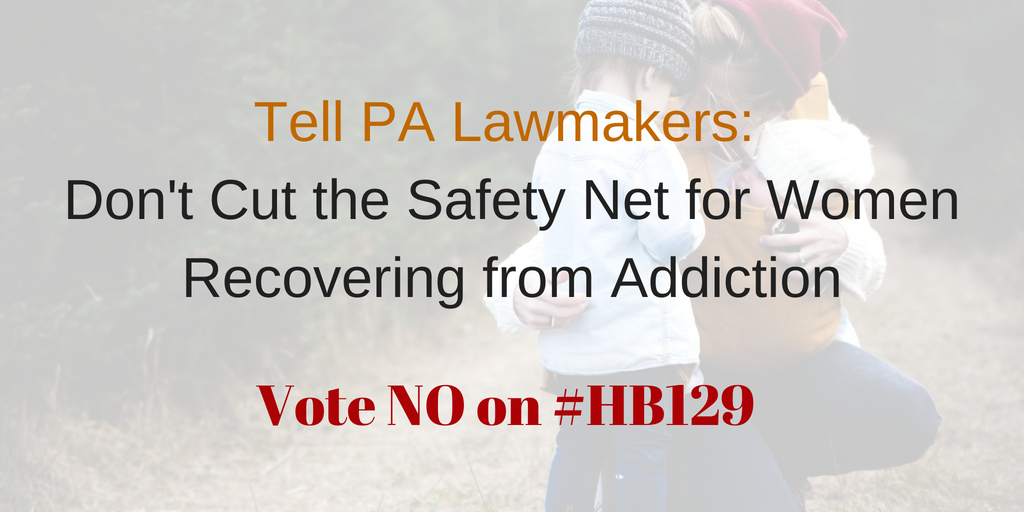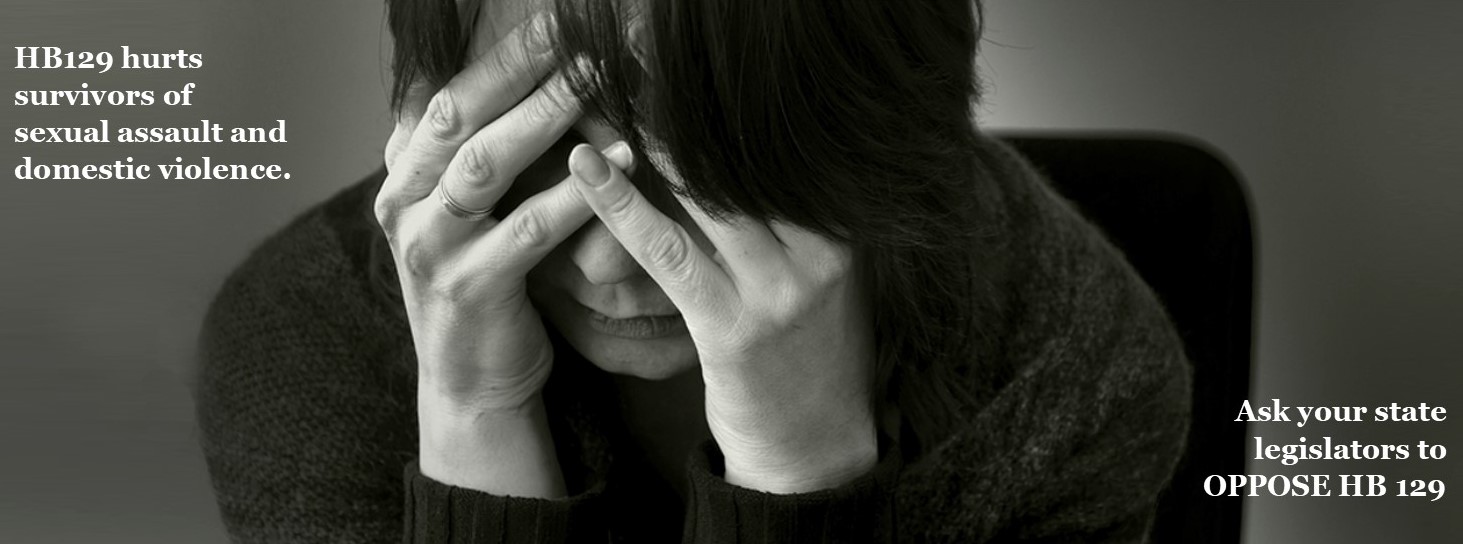
The Women’s Law Project strongly opposes House Bill 129, legislation that would impose a lifetime ban on Temporary Assistance for Needy Families (TANF) assistance for any Pennsylvanian with an addiction that led to a drug-related felony conviction or guilty plea.
TANF is designed to help needy families achieve self-sufficiency. Approximately 90% of the adults who receive TANF are women.
The House Health Committee passed HB129 on May 22 by a vote of 17 – 6. (See votes here.)
We expect the House to vote on HB129 as early as Tuesday, June 5.
How do we know this is a terrible idea? Because Pennsylvania already installed a version of this ban, and it was such a disaster that they repealed it.
The vast majority of people banned for life were women with children. Before 2003, Pennsylvania enforced TANF bans for certain drug-related offenses. Criminal justice and drug policy experts, together with women’s drug treatment professionals and domestic violence programs, saw from firsthand experience that this lifetime ban on public assistance sabotaged women’s recovery prospects and made the drug problem worse, not better.
With failure evident, more than 100 organizations including the District Attorney’s Association, the Pennsylvania Coalition Against Domestic Violence, and women’s drug and alcohol service providers supported the bipartisan reform legislation that lifted the ban in 2003.
Now, fifteen years later, the impact would be even worse given Pennsylvania is in the throes of a full-fledged opioid addiction epidemic.
HB129 also directly contradicts the recommendations made by the same legislative body advancing it.
According to a 2016 report published by the House Majority Policy Committee of the Pennsylvania House of Representatives:
- In 2015, 3,383 Pennsylvanians of all kinds, from all backgrounds, died from drug overdose.
- Despite a great demand for treatment, there is a significant “bed” and provider shortage in Pennsylvania.
- Pennsylvania is also experiencing a shortage of qualified professionals to fill the in-demand jobs of the substance abuse treatment field.
- In regards to treatment, most experts agreed that there are multiple pathways to recovery, and addicts need affordable access to all options.
- Over time, money invested in prevention, intervention and treatment will result in significant savings to our criminal justice system and all levels of government.
We can’t let Pennsylvania go backward, especially when the opioid crisis is at its peak.
Take Action
Please contact your representative today and them to vote NO on HB129.
The Women’s Law Project is a public interest law center in Pennsylvania devoted to advancing the rights of women and girls.
Sign up for WLP’s Action Alerts here. Follow us on twitter and like us on Facebook.
We are a non-profit organization. Please consider supporting equal rights for women and girls by making a one-time donation or scheduling a monthly contribution.



